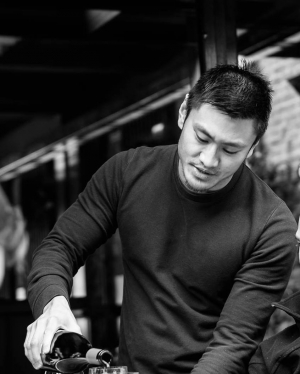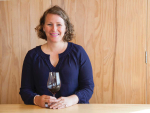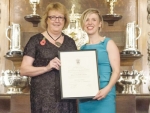This year he finally arrived at its destination: the Master of Wine qualification. He can now, officially, use the highly coveted letters MW after his name, which can add another string to his professional working bow by strengthening his credibility as a wine educator, sommelier, wine list curator and hospitality industry trainer.
So it may come as a surprise to find that he does not plan to use the letters MW at every professional opportunity.
"I have found, both from observation of other's behaviour over the years, and more recently with my own recent admission into the Institute, that some wine people inadvertently treat you differently when they know you're an MW. By leaving it out, I think I get a more honest interaction, which is less influenced by things which shouldn't matter to the discussion at hand," he says.
His personal highlights in gaining the MW qualification earlier this year are that he is now able to officially help other students by sharing his own break through moments, and that he can be a source of encouragement for other Malaysians and South-East Asian wine lovers and students.
"I'm not someone special, and I think getting the MW shows and proves to others that it is possible. I've had numerous messages from people I've never met, people with similar backgrounds to myself, writing to ask how I did it and if they should attempt it, including simple messages of thanks and pride to see someone like them achieve this," says Wong, who was born in Malaysia, schooled there and Singapore and arrived in New Zealand aged 16 to complete seventh form. He also came to New Zealand to go to university and is a trained lawyer, who says he found his way back to life via wine.
It was when studying law at the University of Otago that he first discovered wine. He was on a summer break in Queenstown working in a part-time evening role in hospitality when he began working in vineyards during the day. This is where he met Central Otago winemaking pioneers Alan Brady and Rudi Bauer; two men who he says provided him with the keys to unlock his understanding of wine.
"They did this by showing me wines and explaining flavours in a way that was easy to understand, revealing that wine is not this big mystery that's impossible to understand.
"I remember the first wine that I really 'got', which was a Chard Farm Gewurztraminer. I remember thinking 'wow, I really do smell the lychees'. It was so empowering and made me realize I could do this wine thing, which was helpful since I was in charge of a restaurant wine list for the first time at a Thai place I worked at in Queenstown."
From there, Wong completed his law degree and moved to Wellington. He worked part time in a café, picking up other bits of hospitality work whilst waiting for a legal job to come up. Realising it would be a two year wait before even an internship position was available, he went into full time hospitality work.
"I was enjoying hospo' work at the time – and needed a job – but I didn't really know much about wine or food. That's what is so refreshing about New Zealand – the chance to give it a go, even without the qualification. If I fell flat on my face, then I would have had to find something else to do, but it worked out well because I was given a chance."
He did work in a couple of summer jobs as a lawyer but could not see a career in it.
"The idea of sitting in an office pouring over documents contrasted with working in hospo' and talking about wine... well, for me, the choice was obvious. It was a really nice crowd in the Wellington industry when I got into wine. Christine Comerford is the one who encouraged me to look at the MW; her and Raymond Chan."
The rest is history, which has been a long time in the making. Wong first sat the Master of Wine tasting and theory exams in 2007, immediately passing the theory, despite misgivings that it would be the other way round.
He assumed that a lack of scientific depth in viticulture and winemaking would mean he was a wipe out in the theory exams.
"When I realised that I didn't need that depth of scientific knowledge to pass, I was surprised, but it took me a very long time to complete the qualification after that."
He attributes the long time between passing theory and tasting to a trio of challenges.
"Other than time and finances, it's the format of the exam. It's realising that it's not about learning every last drop of knowledge in the world; it's about knowing what the exam wants you to present."
Five attempts at the tasting exam saw him finally pass.
"I was trying to get 100% identification of the wines, so I just kept tasting more and more, wierder and wierder wines, thinking I would be fine. And finally that light bulb went off when I saw friends passing with 60-70% and not always getting the identification of the wines correct."
Amongst those friends was fellow MW, Emma Jenkins, who advised him to practice writing his answers rather than spend more time tasting different styles of wine.
"Stephen Bennett MW was very instrumental and helpful when I started the programme and Jane (Skilton) has been very generous with her time and that's the whole hospitality industry; everybody is very generous with their time and resources to help me to get through it.
"This whole process has reminded me that it takes a village to raise a child. One person gets the MW at the end but there were hundreds of people who were involved who helped get me there."
Stephen Wong was allowed to use the letters MW from 1 March. The formal presentation ceremony of his Master of Wine qualification is on 9 November 2016 in London.














